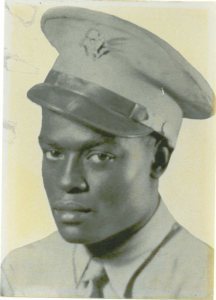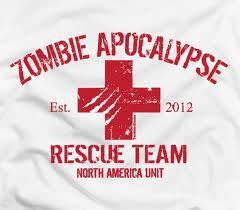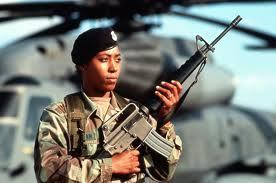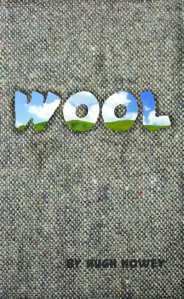M.L. Doyle's Blog, page 14
June 7, 2012
The day after D-Day
 Every year at this time, I put my dad’s picture up on my Facebook page. He passed away several years ago, but right around now, when all the D-Day commemorations start cropping up, I can’t help but think about him.
Every year at this time, I put my dad’s picture up on my Facebook page. He passed away several years ago, but right around now, when all the D-Day commemorations start cropping up, I can’t help but think about him.
My dad was a big talker and enjoyed stretching the truth to the point of ridiculousness, often telling us wild tales about his past, the things he’d done, the places he’d been, most of it obviously untrue. Tales like, that he’d gone to school with Christopher Columbus, or that carrying a hot potato in his hands was the only thing that kept him warm during his five-mile walk to school through waist high snow. Since dad wasn’t immortal and since he grew up in Mississippi, we knew those tall tales weren’t true.
The tall tales he could have told us about, the ones I didn’t hear about until I was an adult and wearing a uniform myself, were the tales of what happened during D-Day.
He had enlisted, was assigned to one of Patton’s all black tank battalions, and for the first time in his life, left his small Mississippi town to go overseas. Now and then, he’d tell me quick stories about those days. He talked about the voyage by ship to England, the long hours of boredom, the sea sickness some suffered, the games of cards, all the smoking and joking going on. He said they learned a few things to say in German. “Haben Sie einen cigarette bitte?” (Do you have a cigarette?) Mochtest du mit mir spazieren gehen? (Would you like to go on a walk with me?) And “Ich liebe dich.” (I love you.)
When he repeated the long ago learned sentences, I told him he’d been equipped to smoke and to pick up chicks. He smiled in a way that made me think he’d been successful in the latter endeavor.
I had to prompt him with questions in order to get him to tell me about the other stuff. Like the day after D-day, when he and his company landed on Utah beach, about their march across Europe and how cold it was during the Battle of the Bulge, or how many people they lost, and the close calls he suffered. He once told me about how they would allow white infantrymen to ride on his tank when they were on the road, only to have those same men shun the black soldiers when they reached a town.
WWII and D-Day and his training and the things he saw and did were the biggest tales of his life, but he didn’t talk about them. My mom, who was a WAC during WWII, didn’t talk about her service either. It’s frustrating now, when I have so many questions.
So I put his picture up on my page, the one with the cocky grin and with his hat tipped to the side like he owns the world. He was a handsome dude, my dad. I’m proud of his service, whatever the hell it was that he did.


June 4, 2012
Zombie Apocalypse preparations?
 In light of rising concerns about the coming Zombie Apocalypse (I believe it’s time to capitalize the ZA, so those of us in the know can cut to the chase), I’ve had several discussions with people about what one should do. Hunker down? Head to a designated homestead where you can band together with preselected friends and family to battle the ZA together? Head out on your own (your family and friends might already be infected) to a remote place, take the high ground and wait it out? Or something else?
In light of rising concerns about the coming Zombie Apocalypse (I believe it’s time to capitalize the ZA, so those of us in the know can cut to the chase), I’ve had several discussions with people about what one should do. Hunker down? Head to a designated homestead where you can band together with preselected friends and family to battle the ZA together? Head out on your own (your family and friends might already be infected) to a remote place, take the high ground and wait it out? Or something else?
And for you skeptics out there, even the CDC prepared a guide to help families prepare for the ZA, so read up on the lists and preparations your government suggests.
In my own preparations, since I work on a military installation, one suggestion I heard was that I should just stay here. What could be more secure than a federal military reservation stocked with food, fuel, weapons and lots of people who know how to us them? Not to mention being surrounded by dedicated and brave service men and women.
Oh contraire, I am told by others. Get as far away from that military base as possible. The masses will ALSO think a spot behind the secure fence line is just the place to be. The hoards of victims of the ZA will flock here, looking for safety. All military reservations will be mobbed. Overrun. The walls will only hold so long and once they fall … well, it’s that slow shuffle walk, decaying flesh and wordless moaning for you. —
Someone put together this map of where seemingly related incidents took place to illustrate the growing evidence that now is the time to plan for the ZA. What do you think? Military base, or no military base?


June 2, 2012
Women in combat – What Shoshana Johnson said
 This is an old interview but I wanted to share it again. I love how Shana continues to display her bravery by speaking up and sharing her experiences. Please watch this CNN interview she gave in February to see an honest take on a subject we all should care about. We are long past the times when there is any such thing as a “safe” or “noncombat” military job. Lets face that facts that women have always and always will serve in combat roles. The word combat should no longer be a separating factor in the roles women play. If the woman is up to the task, she should be given the opportunity to serve within her capabilities.
This is an old interview but I wanted to share it again. I love how Shana continues to display her bravery by speaking up and sharing her experiences. Please watch this CNN interview she gave in February to see an honest take on a subject we all should care about. We are long past the times when there is any such thing as a “safe” or “noncombat” military job. Lets face that facts that women have always and always will serve in combat roles. The word combat should no longer be a separating factor in the roles women play. If the woman is up to the task, she should be given the opportunity to serve within her capabilities.


May 15, 2012
This is how I get into trouble
 This is how I get into trouble. I start to write, run into a rough spot, then decide I need a break to think about it. Taking that break, I pick up my Kindle. I start to read, and damn it if I don’t find some freakin’ book that sucks me in, whips me around, makes me want to live there, find out what is going to happen, have all my questions answered.
This is how I get into trouble. I start to write, run into a rough spot, then decide I need a break to think about it. Taking that break, I pick up my Kindle. I start to read, and damn it if I don’t find some freakin’ book that sucks me in, whips me around, makes me want to live there, find out what is going to happen, have all my questions answered.
The latest book to suck me in is WOOL, by Hugh Howey. Howey creates a post apocalyptic world confined to the limits of a silo, where life is closely regimented and where questions are capital offenses. I couldn’t put it down. Turns out, he’s just recently sold the movie rights to Ridley Scott. Can’t wait to see the story turned into film.
I downloaded the WOOL Omnibus yesterday and have been reading it ever since. Before I knew it, hours passed and this morning, I’m still faced with the same damn writing rough spot I left hours before.
That’s how I get into trouble.


March 30, 2012
Why she gotta be black?
 Warning. I’m climbing on a soapbox and it might take me a while to get off.
Warning. I’m climbing on a soapbox and it might take me a while to get off.
I’ve been fascinated with the discussions about the movie version of the bestselling book The Hunger Games and the racist tweets that flew around the internet. The tweets expressed disappointment and downright anger of some fans when they discovered that a black actress was cast in the role of one of the more sympathetic characters in the story. , in my opinion, was perfect for the role of Rue, but evidently some readers not only didn’t like that she was black, they claimed that her race changed their positive opinion about the character.
“Now I don’t care that she died,” one young tweeter wrote.
Clearly, their reading comprehension skills weren’t up to the task of visualizing a character in a story they enjoyed as being anything other than white.
As shocking and disturbing as the tweets were, they served to prove a point I’ve been trying to make for some time.
In 2008, I blogged about my frustration with brick and mortar bookstores and their practice of sticking every book written by a black author in the African-American section of the store.
“To make it easier for shoppers to find what they want,” I was told when I asked about it.
But, the only people who browse the African-American section of the book store are African-American. I’ve never seen a white person shopping in that section. Why would they? When I wrote my blog post on the subject, I argued that the bookshelf segregation only serves to ensure that black authors aren’t exposed to an audience made up of people other than their own race.
Sure, lots of white readers are fans of Walter Mosely, Maya Angelou, Toni Morrison, Octavia Butler, the black mega authors whose work crosses the racial boundary and authors the brick and mortar stores feel comfortable placing on tables alongside books written by white authors. But for the most part, African-American authors are segregated into the African-American section, where only African-Americans shop.
Frankly, even I don’t shop in those sections. I’ve found that a majority of the books offer views into Tyler Perry-type worlds where black people only live and work with other black people. Their lives are all about being black, about the black experience, basically books centered around race.
That is not how I live. That is not my life. That is not the life my characters live.
A recent critique I received from an editor about my novel went something like, “Okay, your character is a female soldier and she’s black. So what? I kept expecting to see more of her blackness in the story.”
Because I’m a black author, all I get to write about is being black? Do female authors only get to write about being a woman? And when has a white author written about what it means to be white?
The editor’s reaction leads me to believe the only reason black authors are writing about being black is because white publishers expect that from us. Black = the black experience, whatever the hell that is. The character can’t just be black, they have to talk black, act black, suffer some sort of discrimination, be a drug dealer or gang banger or fill some kind of stereotypical role to remind us all that they are black. After all, all characters in books, unless told otherwise, are white, so we’re forced to make the distinction.
The tweets from the disappointed movie goers proved to me that I was right about the African-American sections of book stores. These sections do nothing but segregate authors from people who would simply not browse there. If you don’t want to read a book that features a black character, you can easily avoid the exposure to them.
I hoped that ebooks would change the practice as they’ve changed so many things about the publishing world. I am happy to see that there aren’t African-American sections in ebook stores.
Instead ebooks written by black authors are simply stuck in the mass ebook pile. They’re not also listed in Romance, or Mystery, or Fantasy. They’re just in the giant list of ebooks which means they rarely, not even Walter Mosley, make it into the top 100 lists.
One of the racist Hunger Games tweeters said, “Why does Rue have to be black? Not gonna lie. Kinda ruined the movie for me.”
The tweeter doesn’t have to worry. When it comes to black characters, it’s unlikely they will ever stumble across that unwanted black central character just by browsing the ebook lists.
Not gonna lie. Kinda pisses me off.





